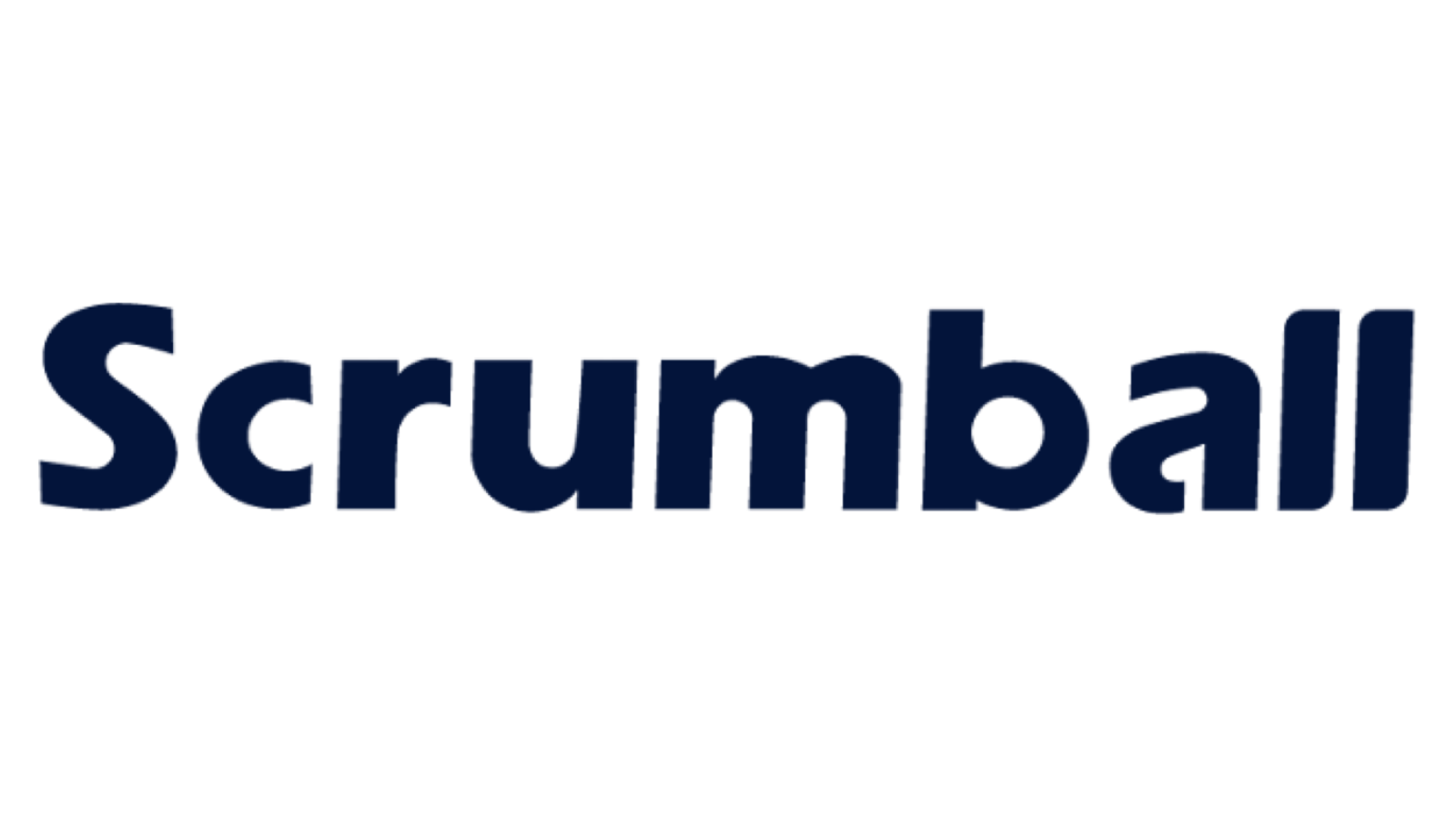How Enterprise Marketing Automation Transforms Large-Scale Strategies

Enterprise marketing automation has become a cornerstone for large businesses seeking to optimize their marketing strategies. In 2022, large enterprises led the adoption of marketing automation tools, driven by the need to manage complex processes efficiently. Industries like banking and healthcare rely on these tools to navigate regulatory challenges while maintaining operational efficiency. Companies such as Amazon and Bonobos demonstrate how marketing automation enhances customer engagement and drives growth. By streamlining workflows and enabling personalization, marketing automation enterprise solutions empower you to deliver impactful campaigns and achieve sustainable success.
Understanding Enterprise Marketing Automation
What Is Enterprise Marketing Automation?
Enterprise marketing automation refers to a suite of tools and technologies designed to streamline and optimize marketing efforts for large-scale organizations. These platforms help you manage complex workflows, automate repetitive tasks, and deliver personalized experiences to your audience. They integrate with existing systems like Customer Relationship Management (CRM) tools, enabling you to create a unified marketing ecosystem. Key functionalities include campaign management, customer segmentation, and automated email marketing. By leveraging these tools, you can enhance collaboration, improve efficiency, and achieve better results across multiple channels.
Why Large Businesses Need Marketing Automation Enterprise Solutions
Large businesses face unique challenges that make enterprise marketing automation essential. With multiple departments spread across different locations, coordination becomes critical for executing cohesive marketing strategies. Automation tools connect teams, streamline communication, and promote collaboration. As your business grows, the volume and complexity of tasks increase. These platforms help you manage diverse activities, such as content creation and message personalization, across various channels. They also integrate with legacy systems, allowing you to track customer behavior and gain valuable insights. By balancing resource allocation and tailoring messages to different audiences, you can maintain a unified brand voice while resonating with local cultures.
Key Differences Between Enterprise and Standard Marketing Automation
Enterprise marketing automation differs significantly from standard solutions in terms of scalability, integration, and analytics. These platforms handle high volumes of customer data and interactions across multiple touchpoints, making them ideal for large-scale operations. They seamlessly integrate with tools like CRM and analytics software, creating a cohesive marketing ecosystem. Advanced analytics capabilities allow you to measure campaign performance and generate actionable insights. Unlike standard tools, enterprise solutions support multi-channel campaigns, predictive analytics, and lead management at scale. This level of sophistication ensures your marketing efforts align with your business goals and drive sustainable growth.
Key Benefits of Marketing Automation for Business Growth

Streamlined Processes and Enhanced Efficiency
Enterprise marketing automation simplifies your workflows, allowing you to focus on strategic goals. By automating repetitive tasks like email scheduling, social media posting, and lead tracking, you save time and reduce errors. These tools centralize your operations, ensuring seamless collaboration across teams. For example, automated campaign management eliminates the need for manual updates, keeping your campaigns consistent across channels. This enhanced efficiency helps you allocate resources effectively, ensuring your marketing efforts align with your business objectives.
Automation also improves the customer journey by reducing delays in communication. When your processes run smoothly, you can respond to customer needs faster, boosting engagement and satisfaction. This streamlined approach not only saves time but also enhances your team's productivity, driving better results.
Personalization at Scale for Better Customer Engagement
Personalization is no longer optional; it’s a necessity. Enterprise marketing automation enables you to deliver personalized content to thousands of customers simultaneously. By analyzing customer data, these tools help you tailor messages to individual preferences, creating meaningful interactions. According to McKinsey & Company, companies excelling at personalization generate 40% more revenue than average players. Additionally, 71% of consumers expect personalized interactions, and 76% feel frustrated when they don’t receive them.
| Source | Evidence |
|---|---|
| McKinsey & Company | Companies excelling at personalization generate 40% more revenue than average players. |
| McKinsey | 71% of consumers expect personalized interactions; 76% get frustrated when this doesn't happen. |
| Accenture | 91% of consumers are more likely to shop with brands that recognize and provide relevant offers. |
By integrating personalized content into every stage of the customer journey, you enhance engagement and build stronger relationships. This approach ensures your brand remains relevant and resonates with your audience.
Data-Driven Insights for Smarter Decision-Making
Data-driven marketing empowers you to make informed decisions. Enterprise marketing automation platforms provide advanced analytics, helping you understand customer behavior and campaign performance. These insights guide your strategies, ensuring they align with market trends and customer expectations.
| Type of Analytics | Description |
|---|---|
| Descriptive Analytics | Shows what happened; interprets historical data to understand business performance. |
| Diagnostic Analytics | Addresses why things happened; identifies patterns and correlations in data. |
| Predictive Analytics | Predicts future outcomes based on existing data and modeling techniques. |
| Prescriptive Analytics | Suggests actions based on AI-driven insights; helps determine what to do next. |
Predictive analytics, for instance, allows you to anticipate customer needs and adjust your campaigns accordingly. Prescriptive analytics takes it a step further by recommending actionable steps to optimize your efforts. These tools ensure your marketing strategies remain proactive, driving business growth and improving ROI.
Cost Savings and Improved ROI
Enterprise marketing automation offers significant cost savings and boosts your return on investment (ROI). By automating repetitive tasks, you reduce the need for manual labor, which lowers operational costs. These tools also optimize your marketing campaigns, ensuring you allocate resources effectively. This efficiency translates into measurable financial benefits for your business.
On average, businesses using marketing automation report an ROI of $5.44 for every $1 spent. These platforms also deliver quick results, with most companies recovering their costs in under six months. Additionally, organizations experience a revenue increase of approximately 34%. These figures highlight the financial advantages of adopting enterprise marketing automation.
| Metric | Value |
|---|---|
| Average ROI | $5.44 for every $1 spent |
| Cost recovery time | Under 6 months |
| Revenue increase expectation | About 34% |
Marketing automation enhances your ability to target the right audience with precision. By analyzing customer data, these tools help you focus on high-value leads, reducing wasted spending. Automated workflows also minimize errors, which can be costly to fix. This streamlined approach ensures your marketing efforts generate maximum impact with minimal waste.
Investing in marketing automation not only saves money but also improves your ROI by driving better results. With advanced analytics, you can measure campaign performance and make data-driven adjustments. This proactive strategy ensures your marketing dollars work harder, delivering higher returns and supporting sustainable growth.
Use Cases of Enterprise Marketing Automation

Multichannel Campaign Management
Managing multichannel campaigns becomes seamless with enterprise marketing automation. These tools allow you to coordinate efforts across platforms like social media, email, and SMS, ensuring consistent messaging. By leveraging omnichannel engagement, you can reach your audience wherever they are, creating a unified customer experience. For example:
- Vodafone improved conversion rates by 159% and achieved a 6x ROI through timely, relevant communications across targeted segments.
- Dover Saddlery generated $2 million in incremental revenue and a 29x ROI by personalizing its campaigns.
- Purina uses follow-up messages to remind customers to reorder pet food, enhancing sales and inventory management.
- Uber reactivates lapsed users by highlighting the benefits of re-engagement, boosting customer retention.
These examples highlight how multichannel campaigns drive results by delivering the right message at the right time. With marketing automation, you can streamline these efforts, ensuring your strategies remain effective and scalable.
Lead Nurturing and Scoring
Lead nurturing and scoring are essential for converting prospects into loyal customers. Marketing automation platforms help you prioritize leads based on their readiness to purchase. This ensures you focus on the most promising opportunities. Personalization plays a key role here. Tailored offers and content significantly increase the likelihood of conversion.
Effective lead nurturing campaigns also retarget leads that need additional convincing. For instance, email automation can deliver timely follow-ups, keeping your brand top-of-mind. By scoring leads, you can allocate resources efficiently, ensuring your team spends time on high-value prospects. This approach not only boosts sales but also strengthens your overall business strategy.
Predictive Analytics for Customer Insights
Predictive analytics transforms how you understand customer behavior. By identifying patterns and trends in consumer data, you can anticipate needs and tailor your marketing efforts. This proactive approach enhances personalization, ensuring your campaigns resonate with your audience.
Predictive analytics also optimizes marketing strategies by providing actionable insights. For example, it helps you adjust pricing strategies or refine targeting to boost sales. Additionally, it reduces customer churn by predicting disengagement and enabling proactive retention efforts. With these tools, you can make data-driven decisions that improve customer experiences and drive growth.
Retargeting and Upselling Strategies
Retargeting and upselling strategies play a vital role in maximizing customer value. Enterprise marketing automation allows you to implement these strategies effectively by leveraging customer data and behavior insights. Retargeting focuses on re-engaging customers who have shown interest in your products or services but have not completed a purchase. Upselling, on the other hand, encourages customers to buy higher-value products or add-ons.
Automation tools enable you to create personalized retargeting campaigns. For example, you can send tailored emails to customers who abandoned their carts, reminding them of the items they left behind. Companies like Bonobos and Warby Parker have achieved remarkable results using such strategies. Bonobos uses personalized emails based on browsing history and a multi-step email sequence for abandoned carts, which boosts engagement and conversions. Warby Parker sends re-engagement emails with exclusive offers, increasing repeat purchases.
| Company | Strategy Description | Results |
|---|---|---|
| Bonobos | Sends personalized emails based on browsing history and uses a multi-step email sequence for abandoned carts. | Boosted email engagement and increased conversions through personalized emails. |
| Warby Parker | Provides personalized product recommendations and re-engagement emails for inactive customers. | Boosted repeat purchases through targeted recommendations and exclusive offers. |
Upselling strategies also benefit from automation. By analyzing purchase history, you can recommend complementary products or premium versions of items customers already own. For instance, BarkBox uses retention workflows to engage subscribers with sneak peeks of upcoming products, reducing churn and increasing loyalty. These strategies not only enhance customer satisfaction but also drive revenue growth for your business.
Automated Customer Journeys
Automated customer journeys are essential for delivering seamless and personalized experiences. These journeys guide customers through every stage of their interaction with your brand, from awareness to post-purchase engagement. Automation ensures that each step of the journey is efficient, consistent, and tailored to individual needs.
Personalization is a key component of automated journeys. By analyzing customer behavior, automation platforms send targeted messages that resonate with your audience. For example, a customer browsing a specific product category might receive an email with related recommendations. Consistency across all touchpoints builds trust and loyalty, ensuring customers receive the same quality of service whether they interact via email, social media, or your website.
| Component | Description |
|---|---|
| Personalization | Automated systems send targeted messages based on customer behavior, increasing engagement. |
| Consistency | Ensures uniform service quality across all touchpoints, building trust and loyalty. |
| Efficiency | Automates repetitive tasks, allowing human resources to focus on complex activities. |
Efficiency is another advantage of automated journeys. By automating repetitive tasks, you free up your team to focus on more strategic activities. For instance, automated follow-ups ensure timely communication, keeping customers engaged without manual intervention. This approach not only enhances customer satisfaction but also strengthens your overall marketing strategy. By implementing automated customer journeys, you create a seamless experience that fosters long-term relationships and drives growth.
Essential Components of Enterprise Marketing Automation
Advanced Segmentation and Targeting
Advanced segmentation and targeting allow you to connect with your target audience more effectively. By dividing your audience into smaller groups based on demographics, interests, and customer behavior, you can deliver hyper-personalized content that resonates with each segment. This approach ensures your marketing messages feel relevant and meaningful to your audience.
Automated segmentation offers several advantages:
- It enables you to communicate with different customer segments efficiently.
- It increases engagement and conversion rates by tailoring messages to specific needs.
- It helps you create personalized content based on customer preferences and behavior.
For example, you can use segmentation to send tailored offers to high-value customers or map customer journeys that align with their interests. This level of precision ensures your campaigns remain impactful across all touchpoints.
Behavioral Tracking and Retargeting
Behavioral tracking provides valuable insights into customer behavior, helping you refine your marketing strategies. By monitoring user actions, such as website visits or product views, you can create personalized retargeting campaigns that drive higher conversions.
| Evidence | Explanation |
|---|---|
| Understanding user behavior | Behavioral tracking allows you to tailor ads based on individual actions, boosting conversions. |
| First-party data | Platforms like Google and Facebook use first-party data to improve ad relevance and user experience. |
| Personalized ads | Personalized ads significantly outperform generic ones in converting users. |
For instance, if a customer abandons their cart, you can retarget them with a reminder email or a special discount. This approach ensures you stay connected with your audience across multiple touchpoints, increasing the likelihood of conversion.
Event Marketing and Campaign Orchestration
Event marketing plays a crucial role in enterprise marketing automation. It allows you to engage your target audience through activities like webinars, product launches, or trade shows. According to research, 77% of marketers consider event marketing their most effective channel.
Marketing automation tools simplify event management by:
- Scheduling and promoting events.
- Engaging attendees with personalized content.
- Automating follow-ups to nurture leads.
- Tracking analytics to measure event success.
For example, you can use automation to send reminders before an event, share live updates during the event, and follow up with attendees afterward. This streamlined approach ensures your campaigns remain organized and impactful, helping you build stronger connections with your audience.
Integration with CRM and Other Tools
Integrating enterprise marketing automation with CRM systems creates a unified platform for managing customer relationships and marketing efforts. This integration allows you to streamline workflows and improve the efficiency of your campaigns. By connecting these tools, you gain access to a wealth of customer data that enhances your ability to deliver targeted and personalized experiences.
With CRM integration, you can segment your customer database more effectively. This segmentation enables you to send tailored messages to specific groups, ensuring your communication feels relevant. You also benefit from data-driven decision-making. Insights into customer behavior and campaign performance help you refine your strategies and focus on what works best. Personalized communication becomes easier as the system uses individual customer data to craft highly relevant campaigns.
Lead management improves significantly with this integration. Automated workflows transfer lead data seamlessly between systems, making it easier to nurture prospects. You can also send timely messages based on customer interactions at key touchpoints. For example, if a customer abandons their cart, the system can automatically send a reminder email. This approach optimizes the customer journey, ensuring every interaction feels smooth and intentional.
By integrating marketing automation with CRM, you create a cohesive ecosystem that supports your business goals. It simplifies processes, enhances customer engagement, and ensures your marketing efforts align with customer needs.
Real-Time Analytics and Reporting
Real-time analytics provides you with up-to-the-minute insights into your marketing performance. These tools allow you to monitor customer behavior and campaign results as they happen, enabling you to make quick adjustments when necessary. This capability is essential for staying competitive in today’s fast-paced market.
One major advantage of real-time analytics is its ability to optimize the customer experience. By analyzing consumer actions across various channels, you can deliver personalized content that resonates with your audience. For instance, if a customer interacts with a specific product, you can immediately recommend similar items or offer a discount. This level of responsiveness keeps your brand relevant and engaging.
Real-time analytics also helps you act quickly in case of anomalies. For example, businesses can use these tools to detect fraudulent activities and respond before they escalate. Additionally, up-to-date information improves decision-making by highlighting strengths and weaknesses in your strategies. Retailers like Macy’s have leveraged real-time analytics to enhance operational efficiency and create seamless customer experiences. As Rudakov from Striim explains, acting in real time prevents revenue loss and ensures customer satisfaction.
By incorporating real-time analytics into your marketing automation strategy, you gain the ability to stay proactive and agile. This approach not only improves campaign performance but also strengthens your overall business strategy.
Choosing the Right Enterprise Marketing Automation Platform
Scalability and Flexibility for Business Growth
When selecting a marketing automation platform, scalability should be a top priority. Your business will grow, and your platform must grow with it. A scalable infrastructure ensures the system can handle increasing workloads without slowing down. Flexible campaign management allows you to create and execute campaigns efficiently, even as your audience expands. Platforms with robust data integration capabilities help you manage the growing volume of customer data seamlessly. Advanced analytics and reporting features also become essential as your campaigns scale, providing insights to refine your strategies.
Scalability impacts your long-term success. If a platform cannot adapt to your evolving needs, you may face costly migrations in the future. Choosing a flexible solution now saves you time and resources later. Look for platforms that support large-scale operations while maintaining performance and reliability.
Integration Capabilities with Existing Systems
Integration is critical for creating a unified marketing ecosystem. A platform that integrates with your existing systems, such as CRM or analytics tools, ensures smooth workflows. However, integration challenges often arise. Data consistency and quality issues can disrupt campaigns. Complex system structures or APIs may require technical expertise. Aligning workflows between systems also demands careful planning.
To overcome these challenges, prioritize platforms with pre-built integrations. These solutions simplify the process and reduce costs. Security and compliance features are equally important, especially if you handle sensitive customer data. A well-integrated platform not only enhances efficiency but also ensures your marketing efforts align with your business goals.
User-Friendly Interface and Support
A user-friendly interface is essential for maximizing the potential of your marketing automation platform. Intuitive design ensures your team can navigate the system easily, saving time and reducing frustration. Many platforms offer extensive features, but they lose value if your team struggles to use them effectively. Ease of use should never be overlooked.
Support services also play a crucial role. Training resources and responsive customer support help your team adapt quickly. Without these, user adoption may lag, and the platform’s capabilities may remain underutilized. Choose a platform that combines simplicity with robust support to empower your team and drive results.
Advanced Analytics and AI Features
Advanced analytics and AI features elevate your marketing automation efforts by providing actionable insights and streamlining operations. Predictive analytics helps you forecast future trends using historical data. It identifies patterns to predict customer churn, lifetime value, and engagement likelihood with your marketing messages. These insights allow you to make informed decisions and stay ahead of market changes.
AI-powered automation simplifies routine tasks, freeing your team to focus on creative strategies. For example, AI can manage automated email campaigns or adjust ad bidding in real time. This efficiency ensures your campaigns remain relevant and impactful. AI also optimizes resource allocation by directing budgets toward high-return channels and campaigns. It continuously analyzes performance and adjusts strategies dynamically, ensuring your marketing efforts deliver maximum results.
These tools enhance your ability to personalize customer experiences. By analyzing vast amounts of data, AI identifies individual preferences and tailors content accordingly. This level of precision strengthens customer relationships and improves engagement. With advanced analytics and AI, you gain a competitive edge by making data-driven decisions and delivering exceptional customer experiences.
Cost and ROI Considerations
Enterprise marketing automation platforms involve several costs, but understanding these expenses helps you calculate ROI effectively. Subscription fees vary based on features and user limits. Data migration costs arise when cleansing and mapping existing customer data. Training costs also factor in as your team learns to use the platform efficiently.
To calculate ROI, start by determining your initial investment, including software and training costs. Next, estimate cost savings achieved through automation, such as reduced manual labor. Identify additional revenue generated from improved marketing efforts and increased sales opportunities. Measure the value of enhanced customer engagement, which often leads to higher retention rates. Add these benefits together to find your total gains.
Finally, use the formula: (Total Benefits - Initial Investment) / Initial Investment * 100. This calculation provides a clear picture of your ROI. By evaluating these factors, you can determine whether the platform aligns with your business goals and delivers long-term value.
Enterprise marketing automation transforms how you approach large-scale strategies. It automates repetitive tasks, accelerating project lifecycles and freeing your team to focus on strategic goals. By delivering personalized content, it enhances customer engagement and loyalty. Real-time analytics provide actionable insights, enabling smarter decisions that align with your objectives. Industries like e-commerce, finance, and healthcare have already leveraged these tools to streamline operations and improve outcomes. While the initial investment may seem significant, the long-term benefits—such as increased efficiency, improved productivity, and sustainable growth—far outweigh the costs. Adopting the right platform unlocks new opportunities for success.
FAQ
What is the difference between enterprise and standard marketing automation?
Enterprise marketing automation handles large-scale operations with advanced features like predictive analytics, multi-channel campaigns, and CRM integration. Standard tools focus on smaller businesses with basic automation needs. Enterprise platforms offer scalability and flexibility, making them ideal for managing complex workflows and high data volumes.
How does marketing automation improve ROI?
Marketing automation reduces manual tasks, saving time and resources. It optimizes campaigns by targeting high-value leads and personalizing customer interactions. Businesses using automation report an average ROI of $5.44 for every $1 spent. This efficiency ensures your marketing dollars deliver maximum impact.
Can small teams use enterprise marketing automation?
Yes, small teams can benefit from enterprise marketing automation. These platforms streamline workflows, allowing small teams to manage large-scale campaigns efficiently. Automation handles repetitive tasks, freeing your team to focus on strategy. Scalable features ensure the platform adapts as your team grows.
How do I choose the right marketing automation platform?
Focus on scalability, integration capabilities, and ease of use. Look for platforms with advanced analytics, AI features, and strong customer support. Evaluate costs and calculate potential ROI. Choose a solution that aligns with your business goals and supports long-term growth.
Is marketing automation suitable for all industries?
Yes, marketing automation works across industries like e-commerce, healthcare, and finance. It adapts to specific needs, such as regulatory compliance in healthcare or personalized recommendations in retail. By tailoring campaigns to your audience, automation enhances engagement and drives results in any sector.
See Also
Exploring Product Seeding Techniques in Today's Marketing
Navigating Influencer Marketing Tools for Small Enterprises
Key Influencer Marketing Statistics for Effective Planning
